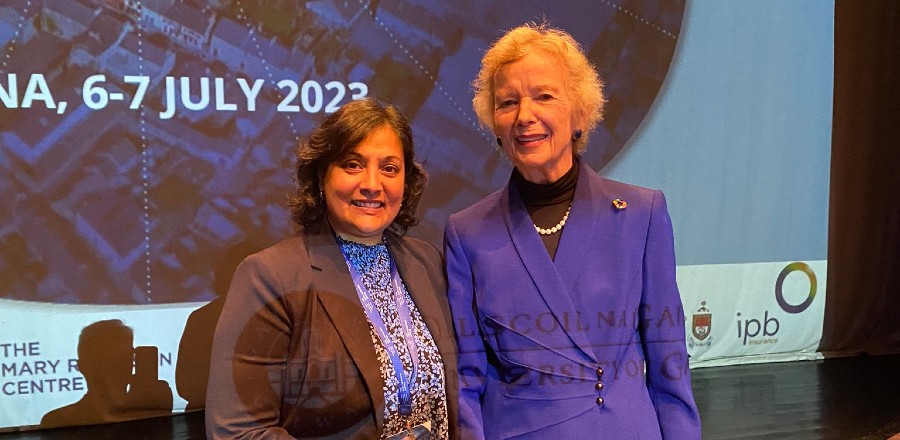Academics highlight the power of education at major climate-change conference

Four researchers from the University recently attended the Mary Robinson Climate Conference, where they presented their findings on how climate change disproportionately affects marginalised and low-income communities.
The conference brought together experts from various fields to discuss climate-related experiences and explore sustainable solutions.
Taking place from July 5-7 in Ballina, Co Mayo, the conference focused on the theme of "Communities Creating Change."
Professor Tahseen Jafry, the director of the University’s Mary Robinson Centre for Climate Justice (MRCCJ), emphasised the heavy burdens faced by communities worldwide, regardless of their location in the Arctic, small island states, or Sub-Saharan Africa, and stressed the importance of practical approaches that address the needs and aspirations of communities on the front lines of climate impact.
She said: “These communities unjustly bear economic, social, and environmental consequences, even though they are not primarily responsible for causing climate change.”
Glasgow Caledonian University has been at the forefront of climate justice education, offering programs like the MSc in Climate Justice and the Doctoral Training Programme. At the conference, Susana Woitzic, an MSc Climate Justice candidate, presented her research on the undermining factors of principles and rights to protest. She highlighted the vital role of democratic accountability and participation in climate justice activism, which is under threat in many democratic nations.
Dr Enyinnaya Mbakwem provided insights into Non-Economic Loss and Damage (NEL&D) caused by climate change. He explained how NEL&D goes beyond physical infrastructure repair, focusing on the intangible and often overlooked consequences of climate change that impact people's lives. Dr Mbakwem's research aims to support those dealing with NEL&D and shed light on this crucial aspect of climate justice.
Dr Sennan Mattar provided his reflection on the critical role of climate-justice education in shaping the next generation of climate-justice leaders. Dr Mattar emphasised the importance of equipping these future leaders with the necessary skills and capacity to influence climate discussions and debates, including events such as the UNFCCC and COP.
Throughout the conference, Professor Jafry, serving as the session chair, underscored the significance of capacity building and skill development in achieving a fair and equitable Just Transition—a grand challenge in the field of climate justice. The researchers' contributions highlighted the urgency of addressing climate change's unequal impact and the need for collective action to create a sustainable future for all communities.
